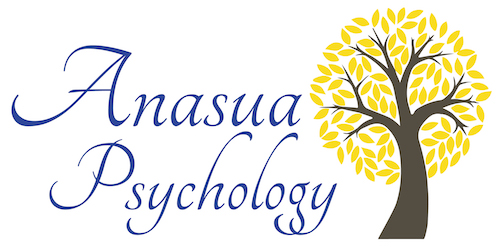
06 May A Mindful Path Through Crisis: Part 3
This blog is a third part of the series in mindful path through crisis blog. The intention of this series is to support and guide you through this challenging situation of Covid 19.
I was recently listening to an interview of Ekhart Tolle, author of “power of Now” and a big proponent of stillness and mindfulness. He presented an interesting way of conceptualizing life situations through a law of polarity, where one polar end means ORDER and the other end means DIS-ORDER AND CHAOS.
According to Tolle, this current crisis has taken us to a level of disorderly life that we had not experienced in such magnitude. All the order and structure we had strived for in the past and had created for ourselves no longer serves us in the same way.
We feel thrown into the deep end to navigate ourselves within this chaos. He further explained how in human life we are bound to experience these extreme polarities of order and dis-order even though this current crisis has been unprecedented. And history indicates this swing has always been a part of human evolution.
For some of us, we have previously experienced this polarity at an individual level in the form of relationship breakdown, grief of losing someone close, financial loss or a health crisis. This current Covid19 situation is on a larger level, impacting more people around the world versus limited to only an individual.
This obviously is pushing us to think out of our comfort zone, forcing us to leap into bigger consciousness, self-growth and spiritual awakening.
Unhappiness, loneliness, sadness, feeling anxious and worried are common feelings to experience due to the imposed changes, limitations and restrictions to our life. Yet when we embrace the dis-orderliness, acknowledge our unpleasant feelings, we can learn to re-adapt our ways of living within the chaos. When we can redefine what matters to us, we will be able to surf through the waves than sink in deep.
Here are 5 more important ways (The 5 C’s) we can further expand our consciousness, gain strength and courage in dealing with the current crisis. They are also universal in nature and can be applied to any life situation.
CONNECTION: Engaging in meaningful connections and conversations with people who matter. Whether its family members or friends, or a community you are a part of, it’s incredibly important to keep channels of communication open and authentic. Whether you are doing via phone call, zoom, facetime or houseparty, it’s an opportunity to deepen our relationships, touch base with people we hadn’t been in contact for a long time or heal a relationship that needed some repair. Surrounding ourselves with loving and warm relationships enhances our sense of belonging, reduces isolation and loneliness.
CARE: Care as in a deeper care of your soul. One way of doing this is immersing your mind into an activity that gives you a sense of contentment and fulfillment. This can be spending time at your garden, reading a book with your favorite tea or enjoying a mindful walk breathing in freshness of nature. A deep sense of care also comes from relaxation practices like belly breathing, meditation, praying and journaling. Deeper care makes us more attuned to our stream of thoughts, more aware of our feelings and our evolving emotional needs. When we acknowledge and attune to our emotional needs, we offer soothing to our inner self.
CALM: Human life has essentially involved setbacks, disappointments and disruption. Calm allows us to bring in re-assurance and peace during crisis. Calm is like a quiet Sea-Bed, even when the waves on the top are rough and scary. Grounding in calm can be practiced through solitude moments, silence and quietness, words of compassion and courage to self via your own self talk. They are powerful tools of maintaining more emotional steadiness during this uncertain time.
CAN DO: Redefining what’s within your control and surrendering what you can’t control, will allow a new way of living each day. When we focus on what we ÇAN do, will give you a sense of regaining our emotional strength, resilience and help you become more adaptable to a new way of living. Think of an inner and outer circle. The inner circle represents what’s within your influence in this current moment and the outer circle is about what you are letting go.
COMFORT: comforting self is like giving yourself a warm hug. Researcher Kristen Neff on self-compassion found how gestures of compassion offers soothing to our overwhelmed feelings, comforts our pain and suffering. A warm rub on your shoulder with your hand, a hand on your heart as you deep breathe or holding both hands softly on your face for a few moments will give your body an experience of gentleness and soothing. Practicing comfort towards self is like nurturing and supporting yourself & your inner child during such vulnerable times.
I hope you will find some of these tips helpful to continue supporting your psychological wellbeing during these times. For therapy appointments email on: anasuapsychologypractice@gmail.com


Hanh Tran
Posted at 21:36h, 11 MayI enjoy reading this blog. Food for thoughts as we may all know but good to be reminded from different angles